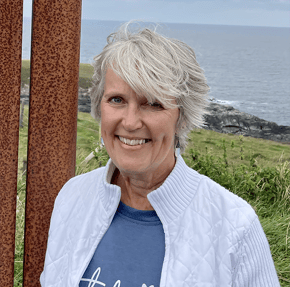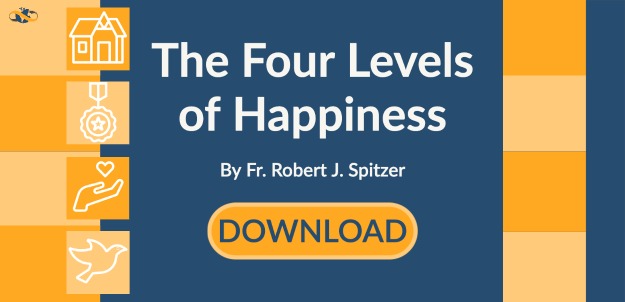How do emotions help us build a virtuous life?
According to emotion theorists, negative emotions developed to help us survive. They do this by evoking a narrowed set of action responses. This narrow focus allows a quick response, which is necessary for life-threatening situations. Fear is an obvious example. Researchers label the actions associated with fear as “the urge to escape.” This urge is accompanied by appropriate physiologic responses, including increased heart rate and breathing. This is true whether you live in the Amazon jungle or the streets of Chicago.
Because negative emotions were originally linked to survival, our default response can be to focus on the negative aspects of the world, our culture, and even our church. We feel the need to stay vigilant in order to survive in a faith-impoverished world, for example. Psychological researchers have their own reasons for focusing on negative emotions.
"Given the vast array of human suffering and loss that stems from excessive or inappropriately expressed negative emotions, the press to understand these emotions is immense." —Barbara Fredrickson
It seems equally valuable, however, to understand the role of positive emotions. Not only can positive emotions lead to personal growth, but they also allow us to be joyful signs of the Good News.
Even in the current culture, there is the popular meme (and song): "What doesn’t kill you makes you stronger."
The question then becomes: Why do we have positive emotions, and what role do they play in developing a virtuous life?
Long-Term Effects of Positive Emotions
A virtuous life can indeed be its own reward on a personal level, but it can also benefit society.
On the human level, cognitive scientists have unveiled the effects of positive emotions in areas as diverse as physical and mental health to human perception. According to Dr. Barbara Fredrickson of the University of Michigan, rather than narrowing our responses, positive emotions actually broaden our action repertoire.
Under the influence of positive emotions and using eye-tracking software, research shows that even our peripheral vision increases, as does our ability to see creative solutions to problems.
"Positive emotions] open us. They literally change the boundaries of our minds and our hearts and change our outlook on our environments. At a very fundamental level, we are able to see larger systems, see larger forms of interconnection when we are experiencing positive emotions." —Barbara Fredrickson
In the 1998 article introducing her “broaden and build” theory of positive emotion, Fredrickson points out the longer-term effects of positive emotions such as joy, interest, and contentment. Under their influence, certain actions emerge, such as playing, exploring, and pursuing further “successes” or achievements.
Delightful examples of play can be found in the animal kingdom. Using a sapling to hurl oneself in unexpected directions is a survival tool in the adult life of patas monkeys, but it is also hilariously displayed in the play of the juveniles who repeatedly hurl themselves headlong into available saplings.
Even in humans, play builds important neurological pathways and helps children develop creativity, social intelligence, and strong relationships. Since humans are neurologically and biologically built to exist and grow within a community, we need these pathways to help us develop into competent and compassionate adults. Imagine the ripple effects if more people focused on learning about and developing their character strengths?
How Positive Emotions Change Us
Positive emotions aren’t always associated with specific actions. According to Fredrickson:
"Some positive emotions seem instead to spark changes primarily in cognitive activity, with changes in physical activity (if any) following from these cognitive changes. Interest and contentment are key examples of this." —Barbara Fredrickson
Fredrickson points out this additional feature of positive emotions:
"[Not only do positive emotions] share the feature of broadening an individual’s momentary thought-action repertoire, but they also appear to share the feature of building the individual’s personal resources, ranging from physical resources to intellectual resources to social resources." —Barbara Fredrikson
Above, Fredrikson mentions "interest"; curiosity, excitement, or wonder are terms that fall under the broader name of “interest.” Quoting another scientist, Fredrickson points out the significance of interest.
Interest generates “a feeling of wanting to investigate, become involved, or extend or expand the self by incorporating new information and having new experiences with the person or object that has stimulated the interest.” —Barbara Fredrickson (quoting Carroll Ellis Izard, 1977, p. 216).
Thus, curiosity and wonder open us to new ideas and encourage us to explore the world around us. Exploration expands our knowledge base and allows us to see new connections that may serve us in the future.
But that isn’t the whole story. Wonder and its close relative awe are known to increase our awareness that we are deeply connected to others and that “there is something greater than ourselves.”
Building Skills and a Virtuous Life Requires Positive and Negative Emotions
“The first thing, therefore, to aim at, if possible, is to make tranquility of character our natural disposition by constant practice, by desire for better things, by fixed determination.” —St. Ambrose
Emotions are often accompanied by physical sensations and physiological reactions. But those sensations and reactions are not the sole drivers of our behavior. The practices of mindfulness and self-regulation are clear pathways to monitor our response to both pleasant and unpleasant sensations. Our perception of purpose and meaning often plays a significant role in those efforts. Very often, we can do hard or unpleasant tasks as long as we have an ultimate goal in mind. Such efforts are often needed to acquire skills or character strengths.
Cognitive scientist Peter Tse tells the humorous story of how he avoided taking violin lessons as a child. He now views it as a “tragedy”—he does not know how to play the violin! Constraints or limits of freedom can feel uncomfortable, he explains, but the ultimate goal is often mastery of some skill.
"My mother emphasized self-determination and freedom from constraint, whereas my father emphasized the imposition of his will for my own good, in order to foster eventual freedom within constraint, namely, mastery of the violin." —Peter Tse (emphasis added)
Negative emotions alert us to the fact that not all is safe or right with the world around or within us. We also know that growth in the life of virtue and holiness does not occur without the negative experiences that are part of suffering. The lives of saints and ordinary people bear witness to this truth.
As social beings, however, made in the image and likeness of God, we also need the resources built in us by joy, wonder, and other positive emotions to bring that image to life in the world.
For further reading, you can check out this brief summary of the six virtues and twenty-four character strengths. You can also take the VIA (Values in Action) Survey of Character Strengths to discover what yours may be!
*Originally published on September 15, 2022.


